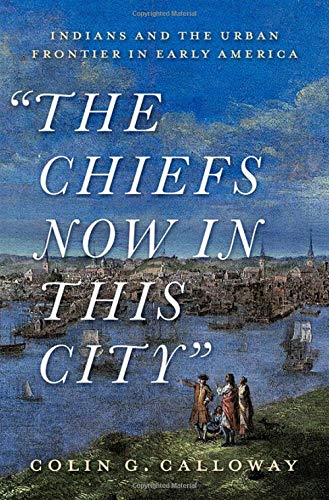
During the years of the Early Republic, prominent Native leaders regularly traveled to American cities--Albany, Boston, Charleston, Philadelphia, Montreal, Quebec, New York, and New Orleans--primarily on diplomatic or trade business, but also from curiosity and adventurousness. They were frequently referred to as "the Chiefs now in this city" during their visits, which were sometimes for extended periods of time. Indian people spent a lot of time in town. Colin Calloway, National Book Award finalist and one of the foremost chroniclers of Native American history, has gathered together the accounts of these visits and from them created a new narrative of the country's formative years, redefining what has been understood as the "frontier."
Calloway's book captures what Native peoples observed as they walked the streets, sat in pews, attended plays, drank in taverns, and slept in hotels and lodging houses. In the Eastern cities they experienced an urban frontier, one in which the Indigenous world met the Atlantic world. Calloway's book reveals not just what Indians saw but how they were seen. Crowds gathered to see them, sometimes to gawk; people attended the theatre to watch “the Chiefs now in this city” watch a play.
Their experience enriches and redefines standard narratives of contact between the First Americans and inhabitants of the American Republic, reminding us that Indian people dealt with non-Indians in multiple ways and in multiple places. The story of the country's beginnings was not only one of violent confrontation and betrayal, but one in which the nation's identity was being forged by interaction between and among cultures and traditions.
Hardcover. 2011.